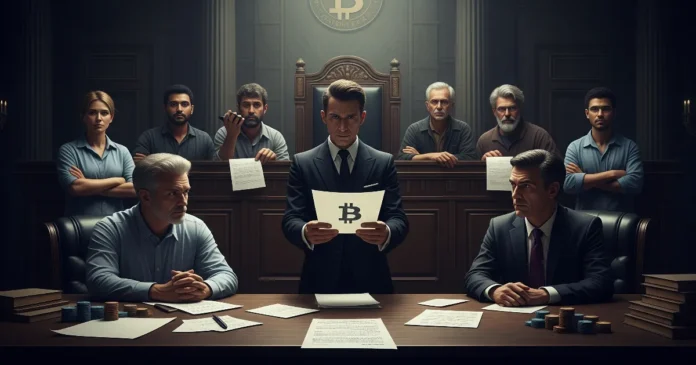See Marcus Willaschek, “‘This Is Mine’: On Intellectual and Other Property,” in Kant: A Revolution in Thinking, Peter Lewis, trans. (Cambridge, Massachusetts and London, England: The Belknap Press of Harvard University Press, 2025) (sample; Scribd).
Note the opening quote to ch. 12: “The value of money is . . . only indirect. One cannot enjoy money itself or make immediate use of it in any way. Yet it is still a means which, among all things, has the greatest usefulness.”
I guess Ayn Rand should have liked him after all 🙂
Anyway, this speaks poorly of him in two ways. First, lack of integrity. Even if he thought it was in his own interest, this does not mean it’s justified. After all I started opposing IP around 1994, right when I passed the patent bar. But I guess there is some truth to Upton Sinclair’s quip “It is difficult to get a man to understand something, when his salary depends on his not understanding it.” But of course, he was wrong even about this. IP harms almost everyone, even those who think it benefits them.
Second, besides mistakenly thinking copyright was in his financial interest, his arguments for IP were not the hallmark of the genius he is heralded to be, but the same simpleminded mistake that other classical liberals and libertarians make. They are basically all confused about the source of wealth and the nature of homesteading. They all accepted Locke’s labor theory of property and, to some extent, the related labor theory of value of Adam Smith, Ricardo, and Marx. I am actually not sure if Locke himself did, since even he did not believe his own natural right theory supported copyright; he supported it only on instrumental grounds but never thought of it as a natural right (contra dishonest misrepresentations by IP-socialist libertarians and Randians). But they are all confused: Marxists, labor theory proponents such as the anti-IP Benjamin Tucker and the pro-IP Spooner The empiricists and utilitarians, the sweat-of-the-brow dessert theorists, natural rights Objectivists, Galambosians, libertarian sci-fi authors like L. Neil Smith, J. Neil Schulman, John C. Wright, Hegelians with their vague and incomprehensible “personality” theory of IP. All of them. You would think Kant would think of something more sophisticated; nope.
Anyway here is a taste of his humdrum “reasoning” in favor of IP. From Willaschek, pp. 126-127:
As an author, Kant was an astute businessman who set great store by being properly recompensed for his efforts. This was, however, difficult to achieve in the eighteenth century, since there was no safeguarding of intellectual property at that time. Although the publishers of a book usually paid the author a fee at the time of publication, as soon as the work came on the market everyone was free to reprint it. Even where statutory provisions were in place concerning the reprinting of books, they were not effectively enforced. Accordingly, almost all of Kant’s works after the Critique of Pure Reason were reprinted by publishers throughout Germany without Kant receiving any benefit.
Except the spread of his ideas. And truth. And justice. And fame. Other than that…
Furthermore, collections of his minor works appeared without his authorization and with no remuneration forthcoming. Of course, this piracy
Piracy? Loaded, pejorative, inaccurate. Copying is not theft, stealing, plagiarism, or “piracy.” Piracy is, you know, a boat on the high seas literally boarding and robbing your vessel.
affected not just Kant but all authors at that time. Aside from the financial losses incurred, a further problem was that the unauthorized editions often contained errors.
Oh now, these IP socialists really just care about the readers! The ones they want to force to pay more for their books! I mean if you outlaw unauthorized books, maybe they will be sort of underground and shoddy. You know, sort of how black market illegal drugs are less safe and more expensive and risky than they would be if they were legal?
Readers were not in a position to appreciate that these errors were not the fault of the author but of the publisher.5
So IP is really for the benefit of the poor, stupid consumers. It’s just a lucky side benefit that it just so happens to financially benefit authors.
It therefore comes as no surprise that Kant went public to highlight the problem of pirate editions and to argue that they should be outlawed. In 1785, just around the time his sales began to boom, Kant published an essay entitled “On the Wrongfulness of Unauthorized Publication of Books,” the main arguments of which he summarized again in the Doctrine of Right of 1797.6 In this essay, Kant distinguishes between the book as a material object, which a person is free to buy and sell as a chattel, and the “speech” it contains—in other words, the content aimed at a readership.7 The content of a book, Kant elaborated, was not a work (opus) but an action (opera)—an address by an author to his public. The publisher does not speak directly to the public through the book, but instead claims to have been tasked by the author with conveying his or her ideas. Thus, a pirate printer deceives those who purchase the book and infringes the rights of the lawful publisher who was engaged by the author.
Ah, so it’s deception! Even the poor consumer who intentionally buys a cheaper unauthorized work is just too stupid to understand he’s being “deceived.” Sort of how we need “freebanks” to be able to engage in fractional-reserve banking to inflate the money supply in response to changes in the demand for money because wages can’t adjust downwards fast enough; they are sticky downwards, because you know consumers are too stupid to understand the difference between purchasing power and nominal prices.
While the pirate publisher can, Kant concedes, become the owner of a copy of the book (as a material object), this does not, however, give him the right to disseminate the “speech” contained within it.
Actually this sounds a bit like the mistake Rothbard made. See The Problem with Intellectual Property, text at n.76.
Even though this reading of things did not make it onto the statute book, in airing it Kant became a pioneer of the law of intellectual property—a concept which, after some tentative first steps in England (1710) and then in France (1791), established itself as part of the legislative framework in Germany and many other countries only during the nineteenth century.8
In the Doctrine of Right Kant’s concept of copyright is embedded in his general theory of private property, with which he positioned himself in one of the key debates within political philosophy during the eighteenth century. Ever since the 1600s, an increasing number of philosophers and jurists had been searching for a legal rationale for ruling that certain parts of the Earth, plus the immovable property on them as well as other, movable objects, should be exempted from general use and set aside for individual people or groups.
Thanks, Locke. Too bad you had to intermix this with the labor-ownership assumption. My pet theory is that Locke overly complicated and contaminated his argument partly to appease the religious views of the time; so he claimed we are self-owners because God gave the earth to us, and so on.
One widespread proposal was based on the idea of initial appropriation: according to this, every person was free to take possession of a piece of land or an object that was not already someone else’s property. After all, they did not belong to anyone who could be harmed by such an action.
This is actually a good point. (The reason one has the right to occupy, use, and homestead unowned resources is precisely because they are per assumption unowned, so that no one can object.) Too bad he did not stop there, but then tried to apply it to IP.
Grok summary of ch. 12:
Summary of Chapter 12: “This Is Mine”: On Intellectual and Other Property [continue reading…]










Follow Us!